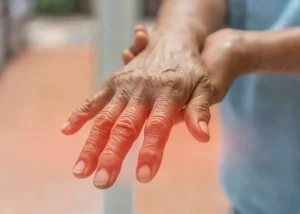
This lessens the severity of withdrawal symptoms, as there is not an abrupt or dramatic change. Tapering will normally create less severe alcohol withdrawal symptoms but will spread them out over a prolonged period. Essentially, tapering provides less intense withdrawal symptoms but over a longer amount of time. Ria Health offers access to many of these tools, including prescription medications, recovery coaching, and online support groups—all through a alcoholism symptoms HIPAA-compliant smartphone app. We support both moderation and abstinence as goals and, although we cannot provide medical detox remotely, we can help you design an effective tapering schedule to reduce your drinking. The main difference between tapering and quitting alcohol cold turkey is how fast you quit.
- As a rule of thumb, HAMS (a harm reduction support organization) suggests reducing your consumption by two standard drinks per day until you reach zero.
- For those who’ve consumed alcohol regularly, a gradual reduction might be safer and more manageable than abrupt cessation.
- Thus, a user will likely seek out alcohol again to rid themselves of the uncomfortable withdrawal symptoms.
- This leads to raised blood pressure, raised pulse rate, rapid breathing, fever, hallucinations, seizures and D.T.s.
- We can leverage our resources and team to help you reduce and eventually end your alcohol use.
- If you go through a medical detox the people they may rehydrate you with an IV and may also give you vitamin shots.
Mental Health Treatment
Before you quit drinking, it is essential to discuss your plans with a healthcare practitioner. If your alcohol consumption has been heavy or chronic, you may be dependent on alcohol. This means that if you suddenly stop drinking, you may experience symptoms of alcohol withdrawal. Tapering involves gradually and progressively reducing your alcohol consumption over time.

Week 2: The Gradual Reduction

For many people, tapering alone is insufficient to help heal their addiction. https://ecosoberhouse.com/ It’s always best to speak with a healthcare provider when changing your relationship with alcohol. Every person has unique needs, and tapering off may not be an adequate solution to reduce or stop drinking.
- Stopping alcohol can be rewarding, but it’s not without challenges.
- This process is often referred to as detox and often causes withdrawal symptoms.
- You should include strategies to both reduce drinking and prevent relapse.
- Don’t wait— reach out today to take the first step toward taking control of your life.
Advice to giving up alcohol

Tapering off alcohol gives the body time to adapt to the how to taper off alcohol lack of alcohol. This reduces the severity of withdrawal symptoms and chances of fatal complications. This widespread prevalence highlights that alcohol dependency is a significant public health issue impacting millions of individuals and families across the country. When you reduce alcohol intake, your body might seek other sources of sugar, leading to cravings.
- Tapering gradually lowers the amount of alcohol that you use over time.
- Just for reference a 12 ounce regular strength (5%) beer is one standard drink.
- It’s a good idea to talk with a medical professional before you begin a taper.
- Insomnia, anxiety and paranoia — the opposite effects of alcohol — are the expected results.
Effects of Tapering Off Alcohol
The level of care you need often depends on the severity of your condition. Quitting early not only improves your chances of success—it can also reduce the need for higher levels of care. On the second day drink one beer every hour and a half for a total of ten beers. Then continue to taper down by reducing the amounts by two beers per day until you are down to zero.
